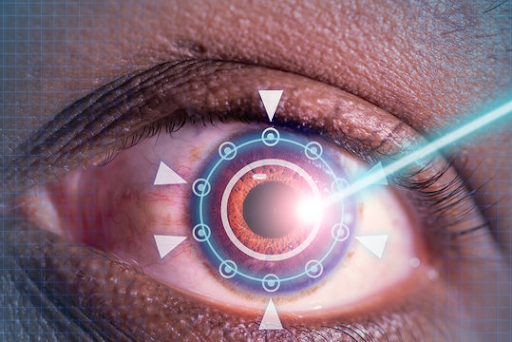
Understanding the ailments that may affect us is crucial in our journey toward better health. Among them, colon cancer is a silent intruder, often going unnoticed until it reaches advanced stages. This disease affects millions of individuals worldwide, making it imperative to grasp its causes, symptoms, diagnosis, treatment options, and the significance of early detection. We hope to provide you with the information needed to protect yourself and your loved ones from this formidable adversary.
Colon cancer
Colon cancer, or colorectal cancer, begins in the large intestine (colon) or the rectum. The colon plays a crucial role in our digestive system, absorbing nutrients and eliminating waste from our bodies. Unfortunately, various factors can lead to the transformation of normal cells in the colon into cancerous growths.
Causes and Risk Factors
While the exact cause of colon cancer remains elusive, several risk factors have been identified. Age is a significant factor, with most cases occurring in individuals over 50. Additionally, genetic predisposition, family history, and inherited conditions such as Lynch syndrome and familial adenomatous polyposis (FAP) can increase the likelihood of developing colon cancer.
Dietary choices also influence the risk, with a diet high in processed meats and red meats and low in fiber being associated with an increased incidence. A sedentary lifestyle, obesity, smoking, and excessive alcohol consumption are additional risk factors contributing to this disease’s development.
Signs and Symptoms
Recognizing the signs and symptoms of colon cancer is crucial for early detection. Unfortunately, colon cancer often presents no noticeable symptoms in its initial stages. As the disease progresses, common signs may include persistent changes in bowel habits, such as diarrhea or constipation, rectal bleeding or blood in the stool, abdominal pain or discomfort, unexplained weight loss, and fatigue.
Diagnosis and Screening
Detect colon cancer; various diagnostic procedures are available. A colonoscopy, which involves the insertion of a flexible tube with a camera into the colon, allows doctors to visualize and potentially remove any suspicious growth. Other tests, such as sigmoidoscopy, virtual colonoscopy, and fecal occult blood tests, can also detect abnormalities in the colon.
Screening for colon cancer is crucial, especially for individuals with risk factors or those over the age of 50. Regular screenings can identify polyps or early-stage cancers before they progress, significantly improving the chances of successful treatment.
Treatment Options
Treatment for colon cancer depends on several factors, including the cancer stage, its location, and the patient’s overall health. Surgery is often the primary approach, where the cancerous portion of the colon is removed, along with nearby lymph nodes if necessary. In some cases, chemotherapy or radiation therapy may be recommended to target any remaining cancer cells and prevent their spread.
Prevention and Early Detection
Preventing colon cancer involves adopting a healthy lifestyle and making informed choices. Regular exercise, maintaining a balanced diet rich in fruits, vegetables, and whole grains, reducing the consumption of processed and red meats, and avoiding tobacco and excessive alcohol consumption are all key steps to minimize the risk.
Moreover, regular screenings are crucial, starting at the recommended age or earlier for high-risk individuals. Early detection allows for timely intervention and increases the likelihood of successful treatment outcomes. By prioritizing preventive measures and staying vigilant, we can significantly reduce the impact of colon cancer on our lives and communities.
Colon cancer is a formidable adversary that demands our attention and understanding. Humanizing the discussion surrounding this disease aims to foster awareness and empower individuals to prioritize their health. Remember to be proactive in seeking medical care, discussing potential risk factors with your healthcare provider, and staying current with recommended screenings. By arming ourselves with knowledge and taking preventive measures, we can significantly impact the battle against colon cancer and safeguard the well-being of ourselves and our loved ones.
Let us remember the importance of early detection. While colon cancer may be a silent intruder, recognizing its potential signs and symptoms and seeking appropriate medical care can significantly increase the chances of successful treatment outcomes. Pay attention to changes in bowel habits, such as persistent diarrhea or constipation, rectal bleeding, abdominal pain, unexplained weight loss, or fatigue. If you experience these symptoms or notice any concerning changes, don’t hesitate to consult with a healthcare professional.
Regular screenings, such as colonoscopies, are vital for early detection, especially for individuals over 50 and those with risk factors. These screenings allow for the identification of polyps or early-stage cancers before they progress further, improving the effectiveness of treatment options.
When it comes to treatment, a multidisciplinary approach is often employed. Surgery is a common intervention, where the cancerous portion of the colon is surgically removed, along with any affected lymph nodes. Depending on the individual case, additional treatments like chemotherapy or radiation therapy may be recommended to target any remaining cancer cells and prevent their spread.
Prevention plays a crucial role in reducing the incidence of colon cancer. By adopting a healthy lifestyle, we can minimize the risk. Regular exercise, a balanced diet rich in fruits, vegetables, and whole grains, and limited consumption of processed and red meats can contribute to a healthier colon. Avoiding tobacco use and excessive alcohol consumption are also essential steps in reducing the risk of developing this disease.
Supporting ongoing research and raising awareness about colon cancer is vital in the fight against this silent intruder. We can make a difference by promoting education, advocating for early detection initiatives, and supporting organizations dedicated to colon cancer research.
In the end, let us unite to understand and combat colon cancer. By humanizing the conversation, we empower ourselves and those around us to safeguard our health proactively. Together, we can raise awareness, promote early detection, and strive for a future where colon cancer is no longer a silent intruder in our lives.
Remember, you are not alone in this fight against colon cancer. Reach out to your healthcare provider, support groups, and loved ones for guidance, encouragement, and emotional support. Please share your experiences, spread awareness, and encourage others to prioritize their health. By coming together, we can significantly impact preventing, detecting, and treating colon cancer, ensuring a brighter and healthier future for everyone. Let us stand united to overcome this silent intruder and pave the way for a world free from colon cancer.







